Is Europe Still the 'Hapless Fool' on Gaza? Sadly, yes.
Europe chooses to “watch closely” as Israel lays waste to Gaza. Meanwhile the only European voice exposing the system behind the genocide is sanctioned by the US. Utter disgrace.
How long can one “watch closely” as a genocide unfolds?
This week, the EU’s 27 foreign ministers met in Brussels to discuss Israel’s ongoing genocide on Gaza. After months of carnage, starvation, and legal rulings, including orders from both the International Court of Justice and the ICC, the outcome of the meeting was not sanctions, not suspension of trade privileges, not even a freeze on diplomatic relations. It was this: the EU will keep a close watch. One of those things, that even though you know that this will be the case, still leaves you very upset and rampant. A priori knowledge of the complicity of the EU states does not help much with post hoc anger.
Kaja Kallas, the EU’s top diplomat assured reporters that the aim is not to “punish Israel” but to “improve the situation in Gaza.” But what kind of logic is that? How do you “improve” a genocide without confronting its perpetrators? What does it mean to hold back punishment while Israel turns what remains of Gaza into a concentration camp? And why? How is it helpful?
But, no. Europe does not want to punish Israel. Will wait. Will assess. Will count the aid trucks, monitor calorie intake, and hope, against all evidence, that the Israeli state decides, on its own, to stop starving and killing. What exactly is being measured here, tell me. Israel’s compliance or Europe’s complicity?
At the meeting, ministers reviewed a list of ten options: revoking visa-free travel for settlers, suspending participation in EU programs, halting imports from illegal settlements, and ultimately triggering Article 2 of the EU–Israel Association Agreement due to Israel’s breach of human rights obligations. They chose none. The options were left “on the table.” Ambassadors were asked to report back in two weeks.
And so Europe continues to play the role it has already written for itself. “Hapless fools in this tragic story, dishing out cash with their eyes closed.” That is how Josep Borrell and Kalypso Nicolaidis described the EU in their recent essay in Foreign Affairs. It was the clearest articulation yet of what Europe could do and what it chooses not to do written by top Europeans.
Nicolaidis (for me, my dear Kalypso) is one of the sharpest -and kindest- political thinkers in Europe today, has always had the rare ability to move between theory and policy with ease. In this essay, she and Borrell not only trace the long arc of Europe’s complicity, from Balfour to Oslo, from aid-without-accountability to mute diplomacy but offer a way forward.
They propose:
– Suspending trade privileges under Article 2 of the EU–Israel agreement.
– Banning imports from illegal settlements, just as the EU has done with Russian-occupied Crimea.
– Creating a transitional authority for Gaza with real reconstruction funds.
– Supporting Palestinian statehood as the precondition for peace, not its reward.
– Defending the ICC and sanctioning those who threaten its legitimacy.
– Investing in civil society across the region to anchor a future beyond despair.
The goal is to move from caution to action, from lip service to leverage.
Alas, Borell’s and Nicolaidis’ propositions seems to have fallen on deaf ears because what we heard this week was the same old language of delay: “stand ready to act,” “monitor developments,” “watch closely.” I see these words as euphemisms of a continent in retreat from its own principles.
There is no longer a question of what Europe can do. For me, the only question is why it won’t. A plethora of theories exist and I’m working on curating them. Will revert, asap.
Francesca Albanese and the Superman
While Europe dithers and flounders, Israeli social media is in upset over the new Superman movie released recently. Apparently because it depicts a militarily superior U.S. ally invading a poor neighbouring country populated by helpless brown civilians, ruled by a dictator with a vaguely Russian accent. I’ve seen the film and cringed at the Orientalism and at the Democratic Hollywood’s longing for a time when America imagined itself as the noble protector of the world’s vulnerable. Those “named Malik, selling falafels (and cared for by Superman),” standing at the color line, evoked for me the many left behind when the U.S. abruptly pulled out of Afghanistan—thousands of people who had helped them for years, handed over to the Taliban. I’m sure the film didn’t mean to do that. I’m also sure the director didn’t mean any harm by perpetuating the image of Maliks, Alis, or Muhammads who are allowed only to be poor, to sell falafel, and to gaze up at Superman in awe. You get the idea.
Then again, I can’t decide whether the film is anti-Israel or anti-Russian more than it is just plain American. But I do find it deeply ironic that whenever collective injustice is portrayed on screen, Israeli media takes it personally. Says something, innit?
Forget the movie. If you’re looking for courage, it’s not on screen.
There really is one individual who is super, and that is certainly, not American, and not a man. But a woman who has stood firm. Francesca Albanese, the UN Special Rapporteur on the Occupied Palestinian Territories, has done what a Hollywood blockbuster would not and European leaders will not. For this, she is now being punished.
On July 9, US Senator Marco Rubio introduced legislation to sanction Albanese, barring her entry into the United States and freezing any assets she may hold there. Her supposed offense are “antisemitism,” “bias,” and “incitement.”
True, we are familiar with these accusations by now as they have been deployed to delegitimise anyone who questions Israel’s conduct.
The deeper problem is that a senior UN official can be criminalised by a top U.S. institution without any serious legal or institutional review.
Also, true, we’ve become accustomed to this kind of conduct from American institutions, deporting people, detaining students, punishing dissent, especially when the protests concern Israel.
Albanese has been vocal since October 7, but the real reason she is now seen as having crossed a line is because she named names. Her most recent report does not merely condemn Israeli state actions but maps out a system that is larger than Israel.
One that includes multinational arms manufacturers, surveillance companies, logistics firms, financiers, and the states that shield them from accountability. She traces the architecture of genocide, its suppliers, sponsors, and stakeholders. And that makes her dangerous.
On July 16, the Permanent Observer Mission of the State of Palestine released a formal letter on behalf of a cross-regional coalition (Brazil, Chile, China, Colombia, Cuba, Iceland, Namibia, Slovenia, South Africa, Spain, Sri Lanka, and members of the OIC) defending Albanese and denouncing the US’ sanctions against her. The letter warns of “unwarranted and unjust attacks,” aimed at silencing independent UN experts and protecting those who commit “grave violations of international law.” It is important because it kind of reaffirms what US does is intimidating the UN and its expert.
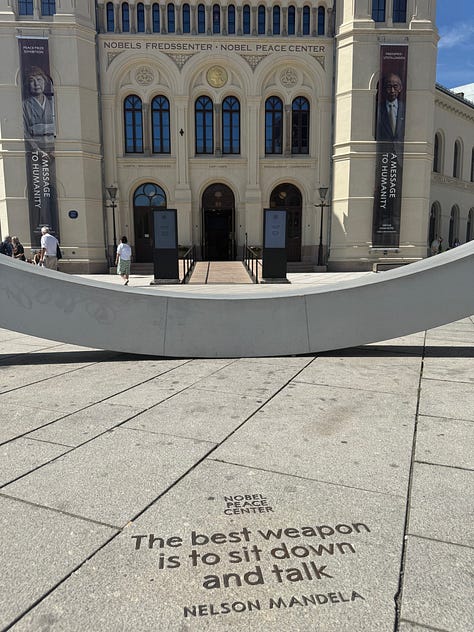
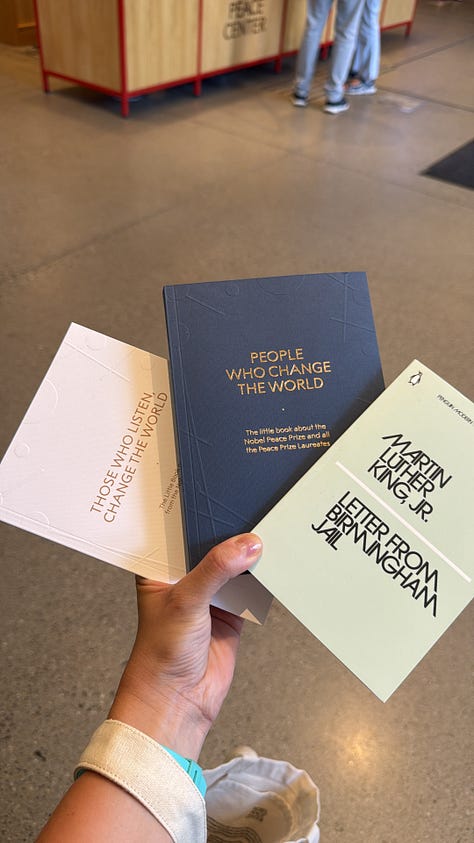
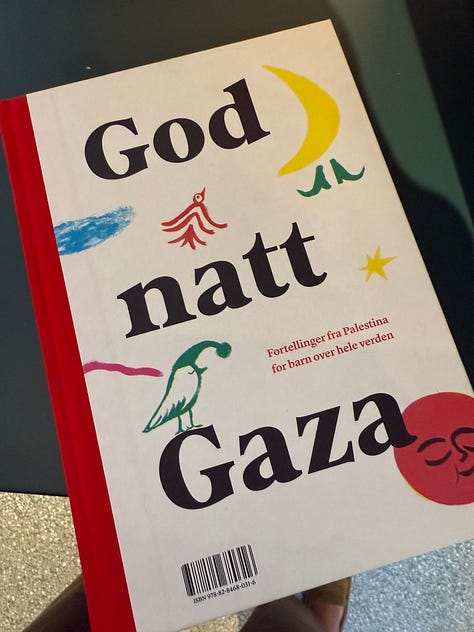
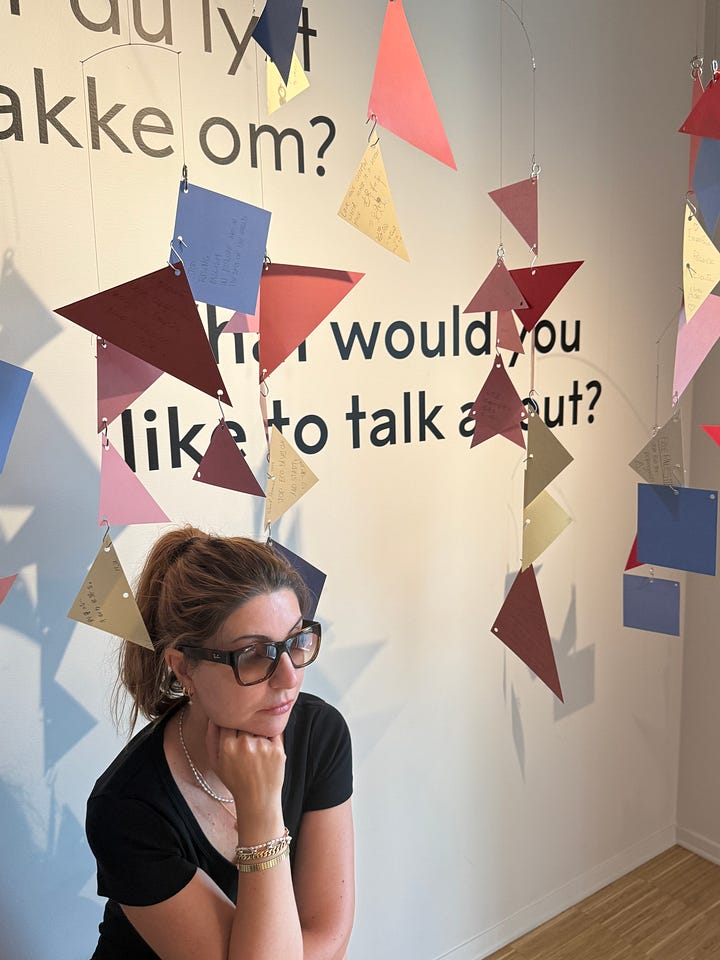
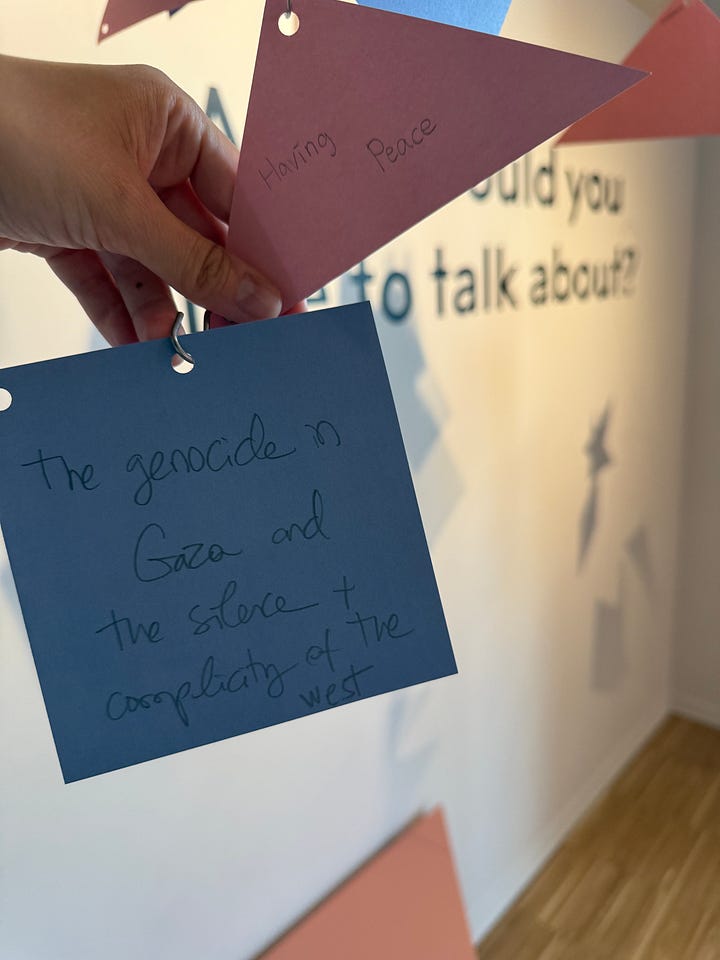
I was in Oslo last week, visiting the Nobel Peace Centre. Wandering through the exhibits, I stood among the names (some unfortunate laureates, yes) but also those whose bravery, integrity, and iron will helped shape history. I walked past tablets bearing the stories of individuals who defied pressure, isolation, and smear campaigns to do what had to be done.
After this tour de force of Nobel Peace Prize winners, I thought of Francesca Albanese. She hasn’t received the prize. It doesn’t matter if she ever will. What matters is that we now know what deserves a reward and what it looks like to stand tall under extreme pressure.
We now know that Marco Rubio will be forgotten. And Francesca Albanese will be remembered for doing the right thing. Quietly, precisely, and with great courage.
Anatomy of a Genocide : What Albanese's Report Says
Francesca Albanese’s latest report to the UN Human Rights Council, titled “Anatomy of a Genocide”, is a methodical document that lays out what few have formally articulated: that Israel's conduct in Gaza since October 7 constitutes genocide—in both intent and action—and that it is part of a longer settler-colonial project that predates Hamas, Netanyahu, or any single government.
The report’s significance lies in its structure, its evidentiary rigour, and its implications for states, corporations, and international institutions.
Unlike UK PM Keir Starmer, a lawyer himself, Albanese identifies multiple acts committed by Israel in Gaza that satisfy the legal definition of genocide under Article II of the 1948 Genocide Convention. These include:
Mass killings of civilians, including targeting of women and children.
Infliction of conditions of life calculated to destroy through starvation, siege, destruction of health infrastructure, and blocking of humanitarian aid.
Deliberate destruction of family units, forced disappearances, and massive displacement.
She stresses that these actions are part of a “pattern of conduct” underpinned by statements from Israeli officials, dehumanising rhetoric, and structural policies.
Importantly, she asserts that genocidal intent can be inferred from:
“The sheer number of civilian casualties, the methodical targeting of homes, schools, hospitals, and shelters, and explicit public statements by Israeli leaders that call for the destruction of Gaza and its people.”
Genocide as Bureaucratic Machinery
The report moves beyond battlefield analysis and reframes genocide as a systemic, bureaucratic process. Albanese traces the genocide to a much wider infrastructure of impunity, including:
State institutions that enable targeting and siege.
Legal justifications constructed to immunise Israeli actors.
Media narratives that manufacture consent and suppress dissent.
Corporate actors, especially arms and tech firms, who profit from and facilitate military operations.
This reframing unsettles the idea that genocide is a spontaneous eruption of violence. It is instead shown as governed, budgeted, planned.
Complicity and Aiding Genocide
This is where the report becomes especially disruptive because Albanese directly implicates third-party states and private actors. She warns that any state providing weapons, intelligence, diplomatic cover, or financial support “with knowledge of the risk of genocide” may be complicit under international law.
This includes:
The United States and European countries exporting arms.
Corporations providing weapons systems, AI surveillance tools, and logistics.
Financial actors underwriting the war economy or settlement expansion.
She calls for an investigation into corporate complicity and recommends the activation of universal jurisdiction in national courts, including asset freezes and travel bans on individuals linked to genocidal conduct.
Colonial Continuum: From Nakba to Gaza
Context is crucial and that is what Albanese provides. The report places the current atrocities within a longer settler-colonial trajectory, starting with the Nakba and continuing through occupation, blockade, and the two-tier legal regime in the West Bank. These are well-known, scholarly established truths but it is crucial to have them in a UN report.
Albanese argues that genocide in Gaza is a culmination rather than a response to a horrific event. This positioning challenges the diplomatic and media framing that treats October 7 as a rupture or the starting point. Yes, it is trigger but a trigger in a pre-existing project of domination and expulsion.
What Needs to be Done
Albanese’s recommendations:
Immediate arms embargoes on Israel by all states.
Suspension of political and trade agreements with Israel, including the EU–Israel Association Agreement.
Referral of named individuals to the International Criminal Court.
Sanctions on corporations found to be aiding the war.
Full implementation of the ICJ’s provisional measures, with monitoring mechanisms.
Recognition of the genocide by states and civil society.
Her message is clear that the international community can no longer claim ignorance or helplessness. The law is there. The evidence is there. What remains is political will.
Albanese’s report is perceived as uniquely threatening because it names the structure that enables a genocide by exposing the mesh of actors: military contractors, legal architects, media silencers, and complicit democracies (!). So it is not solely about Israel but the system.
And that is why she is being sanctioned by the US.
Albanese’s full report is here.



I really hope Albanese has top-notch security. She is a superwoman indeed. With the UK competing with US in authoritarianism, I am glad to see Sultana and Corbyn making a break from the system. And damn, I’ve felt for awhile that China really missed an opportunity to get most of the world in their corner if they had used their weight to help Palestine. Could’ve crushed the west in moral authority whether they really cared or not. Gotta leave it to the little countries to have moral courage I guess.
Brilliant post - thank you!